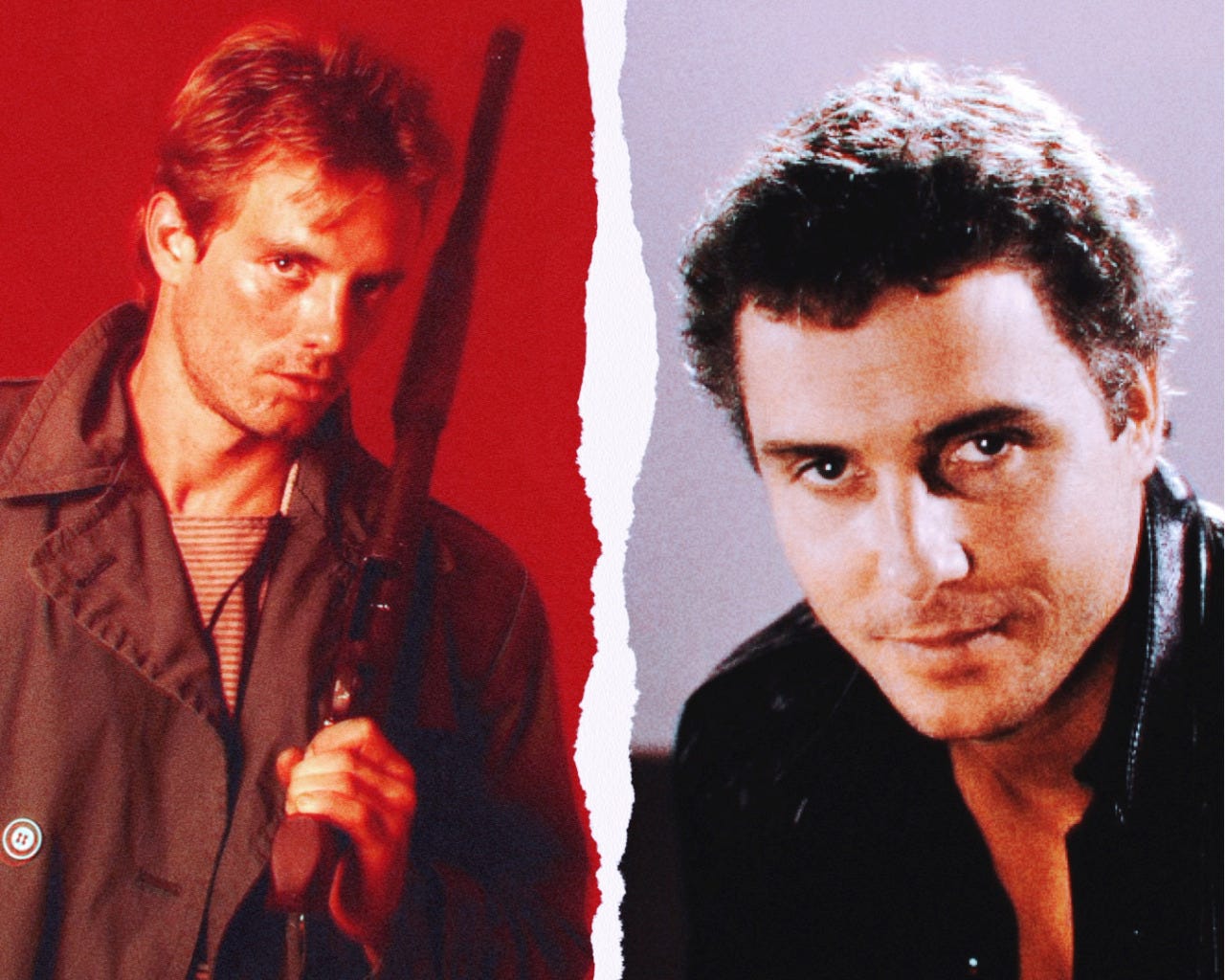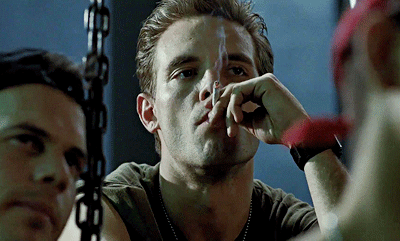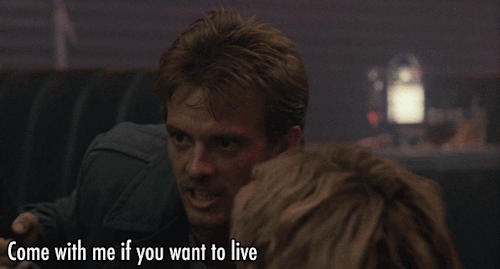(Orion Pictures / United Artists)
Every once in a while, we get articles predicting who will be the next big thing in Hollywood. It’s always interesting to look back and see who doesn’t make it. Robby Benson was hyped to be a star in the early 1970s as was Gretchen Mol back in the late 1990s. Guy Madison was one of the earliest examples of this during the mid-1940s. But now all three are remembered primarily for a couple of specific projects. Two actors I usually think of who had all the potential and qualifications for universal stardom, but missed the boat are Michael Biehn and William Petersen. Both are associated with two of the most successful auteurs in Hollywood history [Michael for his collaborations with James Cameron, William for his with Michael Mann], conventionally attractive, and talented enough to leave an impression on the viewer. When you watch Cameron’s sci-fi thriller The Terminator (1984), it feels like Michael has what it takes to be a superstar just as much his co-star. Yet it was Arnold Schwarzenegger who became the biggest action star in the world for the next decade, while Michael carried on with supporting roles in some hits [including reuniting with Cameron on Aliens (1986) and The Abyss (1989)] and a lot of misses. With William, he began his career cast in a bit part of Mann’s crime drama Thief (1981) before the director recruited him as the lead in his stylish procedural mystery Manhunter (1986). Despite the critical success, the actor would primarily stick to work on network TV for his career.
Over the years, I’ve seen theories on why neither grew into leading man status. Sometimes it’s something as simple as just not wanting all the public attention that comes with fame. William performs on stage as much as on screen and could prefer the former. Michael has talked about how his personal struggles with alcoholism affected his career choices by the 1990s. But years ago, I read a comment online where a movie fan suggested that Michael was essentially in the right place at the wrong time. And the more I thought about it, the more I think this might be the real reason both men’s legacies are through only a few classics. By the 1980s, the male superstar was more in line with the beefy, macho masculinity of Arnold, Sylvester Stallone and Kurt Russell. Even more traditional male leads, such as Harrison Ford and Tom Cruise, were still alpha adjacent. William’s performances in Manhunter and William Friedkin’s To Live and Die in LA (1985) feel like they would belong more in the 1970s, when broody A-listers like Al Pacino and Jack Nicholson were at their prime. Similarly, I can see Michael doing the same or even a decade later in the 1990s, succeeding at the kind of versatile careers of Tom, Brad Pitt and Keanu Reeves at the time. William and Michael are the more realistic type of strong and confident that you find in everyday life, hence them being known for playing soldiers and cops. They just happen to have a good amount of screen presence and allure to boot. Marvel actor Sebastian Stan has occasionally gotten comparisons to Mark Hamill, but he actually reminds me more of Michael back in his younger days.
Still, it’s better to be remembered for one thing than nothing as an artist. While Michael wasn’t a box-office draw initially, he has had roles in handful of blockbuster hits, like Aliens, The Abyss, George Cosmatos’ Tombstone (1993), Michael Bay’s The Rock (1996) and Robert Rodriguez’s Planet Terror (2007). But it’s his iconic role as tragic hero Kyle Reese in the first Terminator feature that film fans have consistently remembered him the most as, and places him in pop culture history. Manhunter and To Live and Die in LA make for a very appropriate double feature as gritty crime dramas with ultra ‘80s aesthetic and William leading both. Though he continues to appear in film, his primary acting gig for a long time was co-starring on twelve seasons of the popular CBS series “CSI: Crime Scene Investigation” (2000-2015). When you look back at their outputs, they’re still pretty good even without all the limelight. Michael and William seem fine being recognized as ‘that one guy’ in movies all these years later, and maybe that’s really enough to make a comfortable living as an actor. You get to experience showbusiness and performing, plus are able to walk down the street unnoticed. Sounds alright with me.







